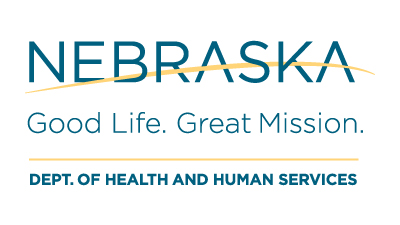![]()

Throughout the month of June, the Department of Health and Human Services recognizes the importance of spreading awareness and resources related to Post-Traumatic Stress Disorder (PTSD). PTSD is a mental health challenge that can impact any individual of any age after experiencing or witnessing a traumatic or life-threatening event. A traumatic event might be physical violence, military combat, natural disasters, or a severe accident.
According to a survey done by the U.S. Department of Veterans Affairs, approximately 6% of the population in the United States will experience PTSD at some point during their lives. About eight of every 100 women (or 8%) and four of every 100 men (or 4%) will experience PTSD at some point during their life. In 2020, about 13 million Americans experienced PTSD.
“Any individual of any age can be affected by symptoms of PTSD,” said Interim Director of Behavioral Health Tony Green. “Whether you are a veteran or civilian survivor of a serious accident, natural disaster, or other traumatic event, know that effective treatment is available and can lead to a better quality of life.”
While it is true that veterans are more likely to experience symptoms of PTSD, it is still possible for any individual who goes through a traumatic or life-threatening event to experience PTSD. It can range from relatively mild to causing serious challenges in day-to-day life. It may disrupt your relationships, cause problems at work, or leave you feeling anxious, depressed, angry, and isolated. The good news is that it’s treatable using various therapy techniques and medications. Individuals who experience PTSD symptoms can learn to cope with and resolve some of the symptoms. It is critical to recognize the significant effects that trauma can have on the body both physically and mentally. If you suspect that you might be experiencing PTSD, you are not alone. There is hope and there is help.
Signs of PTSD:
- Mental or physical discomfort when reminded of the event.
- Flashbacks, in which it feels as if the event is occurring over and over.
- Frequent nightmares about the event.
- Difficulty remembering the traumatic event and avoiding reminders of the experience, such as places, people, and objects.
- Hyperarousal symptoms, such as feeling tense, being startled easily, and having trouble sleeping. While it is normal to experience some of these symptoms after a terrible event, symptoms lasting more than a few weeks may be signs of PTSD.
- Depression, worry, intense guilt, and feeling emotionally numb.
- Loss of interest in formerly enjoyable activities.
Some factors that may promote recovery after trauma include:
- Seeking out support from other people, such as your peers, friends, and family.
- Finding a support group or faith-based group after a traumatic event.
- Developing a sense of control and taking action for what you can control along with support and even treatment.
- Having a positive coping strategy or a way of getting through the bad event and learning from it.
- Being able to act and respond effectively, despite feeling fear.
Many people who experience PTSD have one or other co-existing mental health challenges — like depression, anxiety, alcohol or drug use disorders, or thinking about harming themselves or others. Seeking treatment for any mental health challenge, including PTSD, can help people live healthier lives. For some people, PTSD symptoms may start later on, or they may come and go over time. Treatment can help even if the trauma happened years ago.
Need to talk or get immediate help in a crisis? Help is available. If you or a loved one need assistance, please reach out to:
- The Suicide and Crisis Lifeline – call, text, or chat 988
- Your faith-based leader, your healthcare professional, or your student health center on campus.
- Nebraska Family Helpline – Any question, any time. (888) 866-8660
- Rural Response Hotline, (800) 464-0258
- Disaster Distress Helpline: 1-800-985-5990 (oprime dos para Español) or text TalkWithUs to 66746.
- National Domestic Violence Hotline: 1-800-799-7233 or text LOVEIS to 22522
- National Child Abuse Hotline: 1-800-4AChild (1-800-422-4453) or text 1-800-422-4453
- National Sexual Assault Hotline: 1-800-656-HOPE (4673)
